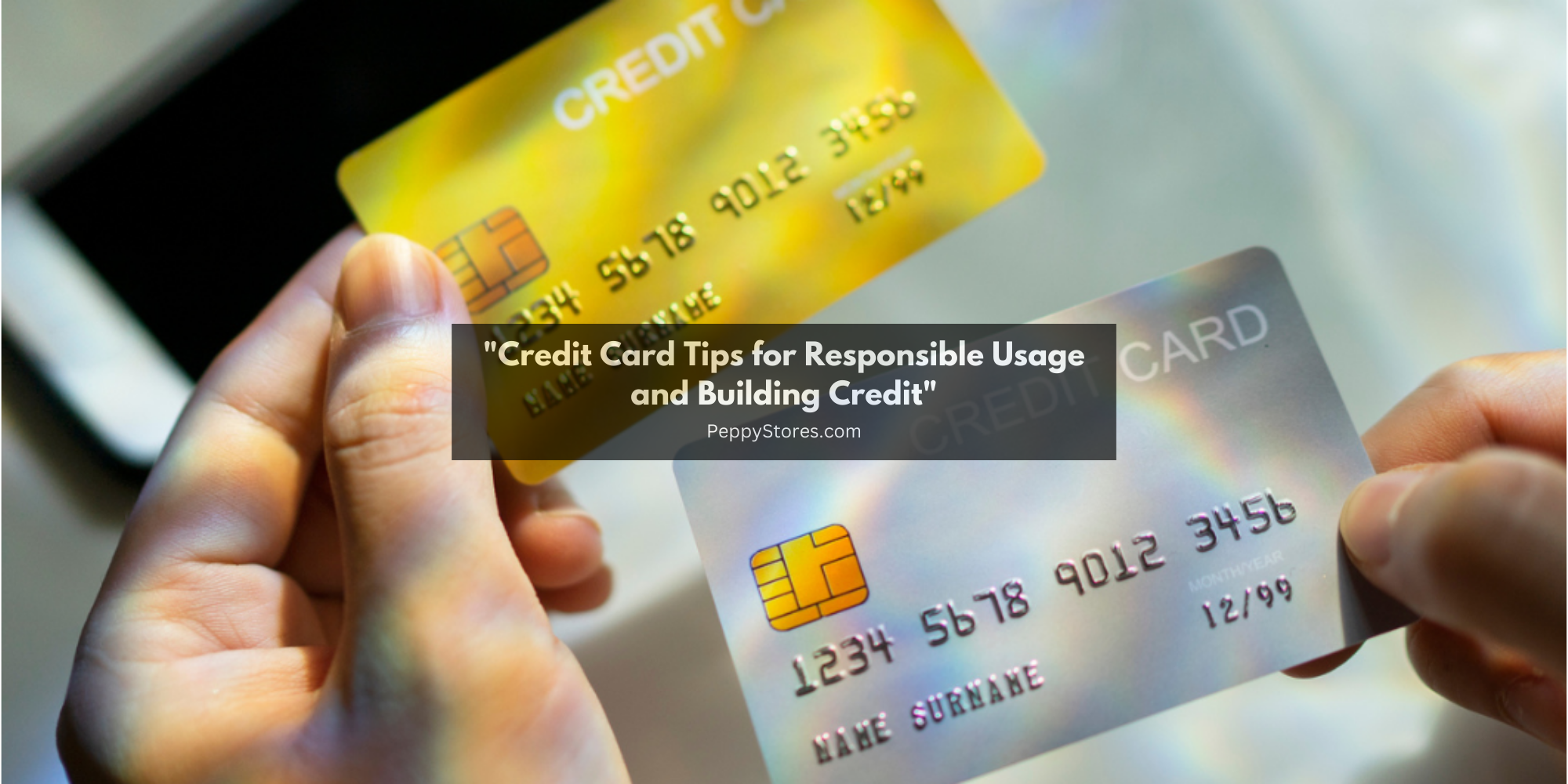Credit cards are powerful financial tools that offer convenience, security, and the potential to build a positive credit history when used responsibly. However, improper use can lead to debt and negatively impact your credit score. In this comprehensive guide, we will explore essential tips for responsible credit card usage and strategies for building and maintaining a healthy credit profile for individuals living in the USA.
Understanding the Basics
1. Know Your Credit Card Terms:
Before using a credit card, familiarize yourself with the terms and conditions. Understand the interest rate (APR), grace period, credit limit, and any fees associated with the card. This knowledge empowers you to make informed decisions and avoid unexpected charges.
2. Understand Credit Card Interest:
Credit cards often come with high-interest rates. The APR represents the cost of borrowing, and interest accrues on any outstanding balance if not paid in full by the due date. Paying the full balance each month can help you avoid interest charges.
3. Credit Limits Matter:
Your credit limit is the maximum amount you can charge on your credit card. It’s crucial to stay well below your limit to maintain a healthy credit utilization ratio, a key factor in your credit score. Aim for a utilization rate below 30% of your credit limit.
4. Grace Period:
Credit cards typically have a grace period during which you can pay your balance in full without incurring interest. Understand the length of your grace period and strive to pay the full balance before it ends to avoid interest charges.
Responsible Credit Card Usage
1. Create a Budget:
Establish a monthly budget that outlines your income and expenses. Allocate specific amounts for necessities, savings, and discretionary spending. Having a budget helps you avoid overspending and manage your credit card balances effectively.
2. Pay Your Balance in Full:
The most effective way to avoid paying interest is to pay your credit card balance in full each month. This practice not only saves you money but also contributes positively to your credit history.
3. Timely Payments:
Pay your credit card bill on time every month. Late payments can result in fees, increased interest rates, and negative marks on your credit report. Set up automatic payments or reminders to ensure you never miss a due date.
4. Monitor Your Statements:
Regularly review your credit card statements to track your spending, identify unauthorized transactions, and ensure the accuracy of charges. Promptly report any discrepancies to your credit card issuer.
5. Avoid Minimum Payments:
While making the minimum payment is better than missing a payment, it’s not an ideal practice. Minimum payments often cover mostly interest, leaving the principal balance largely untouched. Aim to pay more than the minimum to reduce your balance faster.
Building Credit with Credit Cards
1. Use Credit Cards Responsibly:
Demonstrating responsible credit card usage is a key factor in building and maintaining good credit. Use your credit card for planned expenses within your budget, and avoid impulse purchases that can lead to high balances.
2. Diversify Your Credit Types:
A mix of credit types, such as credit cards, installment loans, and mortgages, can positively impact your credit score. While it’s essential to use credit cards responsibly, having a diverse credit portfolio can enhance your creditworthiness.
3. Keep Old Accounts Open:
The length of your credit history is a significant factor in your credit score. Avoid closing old credit card accounts, as they contribute to the overall age of your credit history. Closing accounts may reduce your available credit and potentially harm your credit score.
4. Limit New Credit Applications:
Opening multiple new credit accounts in a short period can be viewed as risky behavior. Each credit inquiry can have a temporary impact on your credit score. Limit new credit applications and only open accounts when necessary.
5. Credit Card Rewards:
Many credit cards offer rewards programs, such as cash back, travel rewards, or points. Take advantage of these benefits but be cautious not to overspend or accumulate debt in pursuit of rewards. Choose cards that align with your spending habits and financial goals.
Credit Card Security
1. Protect Your Card and Information:
Treat your credit card like cash and keep it secure. Avoid sharing your card information, especially in insecure or public settings. Memorize your PIN and use it discreetly.
2. Monitor for Fraud:
Regularly review your credit card statements for any unauthorized transactions. Report any suspicious activity to your credit card issuer immediately. Many issuers offer fraud protection and may reverse unauthorized charges.
3. Be Wary of Scams:
Exercise caution when sharing credit card information online or over the phone. Be wary of phishing scams and only provide your information to trusted and secure sources.
4. Enable Security Features:
Take advantage of security features offered by your credit card issuer, such as two-factor authentication, account alerts, and mobile app security. These features add an extra layer of protection to your account.
Dealing with Credit Card Debt
1. Addressing High Balances:
If you find yourself with high credit card balances, develop a plan to pay them down. Consider prioritizing high-interest debt first or using a debt repayment strategy like the snowball or avalanche method.
2. Negotiate Lower Interest Rates:
Contact your credit card issuer to inquire about lowering your interest rate. A lower rate can save you money on interest payments and help you pay down your balance more efficiently.
3. Consider a Balance Transfer:
If you have high-interest credit card debt, explore the option of a balance transfer to a card with a lower interest rate. Be mindful of balance transfer fees and the terms of the new card.
4. Seek Professional Advice:
If you’re struggling with credit card debt, consider seeking advice from credit counseling agencies or financial advisors. They can provide guidance on debt management, budgeting, and developing a plan to improve your financial situation.
Conclusion
Credit cards offer a convenient and flexible way to manage finances, build credit, and access various benefits. By adopting responsible credit card habits, you can maximize the advantages while avoiding potential pitfalls. Understanding the terms of your credit cards, using them wisely, and staying vigilant about security are key components of responsible credit card usage. With careful planning and thoughtful financial management, credit cards can be valuable tools in achieving your financial goals while building and maintaining a positive credit history.



